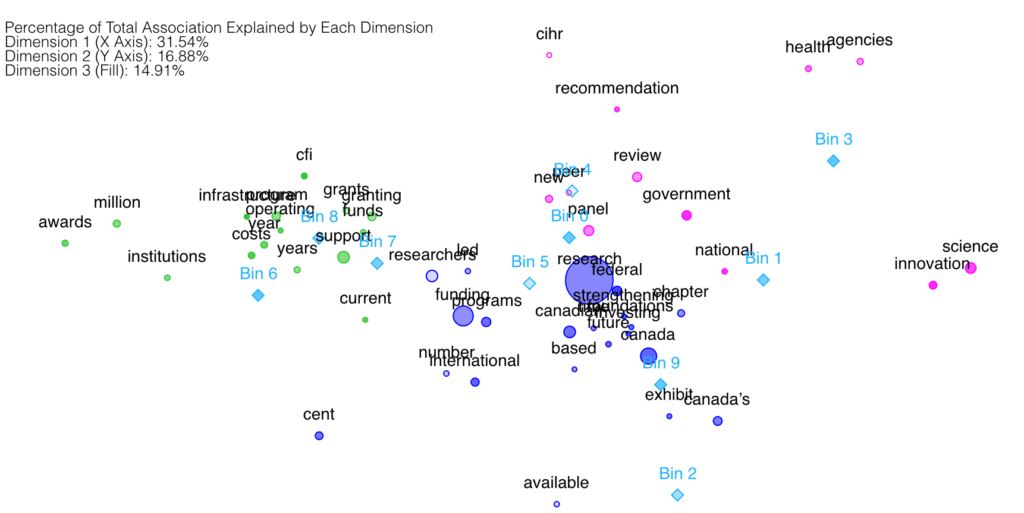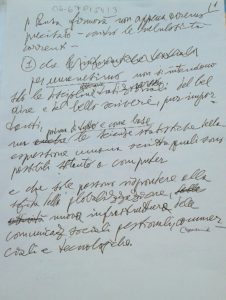This year we had busy CSDH and CGSA meetings at Congress 2018 in Regina. My conference notes are here. Some of the papers I was involved in include:
- “Code Notebooks: New Tools for Digital Humanists” was presented by Kynan Ly and made the case for notebook-style programming in the digital humanities.
- “Absorbing DiRT: Tool Discovery in the Digital Age” was presented by Kaitlyn Grant. The paper made the case for tool discovery registries and explained the merger of DiRT and TAPoR.
- “Splendid Isolation: Big Data, Correspondence Analysis and Visualization in France” was presented by me. The paper talked about FRANTEXT and correspondence analysis in France in the 1970s and 1980s. I made the case that the French were doing big data and text mining long before we were in the Anglophone world.
- “TATR: Using Content Analysis to Study Twitter Data” was a poster presented by Kynan Ly, Robert Budac, Jason Bradshaw and Anthony Owino. It showed IPython notebooks for analyzing Twitter data.
- “Climate Change and Academia – Joint Panel with ESAC” was a panel I was on that focused on alternatives to flying for academics.
CGSA:
- “Archiving an Untold History” was presented by Greg Whistance-Smith. He talked about our project to archive John Szczepaniak’s collection of interviews with Japanese game designers.
- “Using Salience to Study Twitter Corpora” was presented by Robert Budac who talked about different algorithms for finding salient words in a Twitter corpus.
- “Political Mobilization in the GG Community” was presented by ZP who talked about a study of a Twitter corpus that looked at the politics of the community.
Also, a PhD student I’m supervising, Sonja Sapach, won the CSDH-SCHN (Canadian Society for Digital Humanities) Ian Lancashire Award for Graduate Student Promise at CSDHSCHN18 at Congress. The Award “recognizes an outstanding presentation at our annual conference of original research in DH by a graduate student.” She won the award for a paper on “Tagging my Tears and Fears: Text-Mining the Autoethnography.” She is completing an interdisciplinary PhD in Sociology and Digital Humanities. Bravo Sonja!






